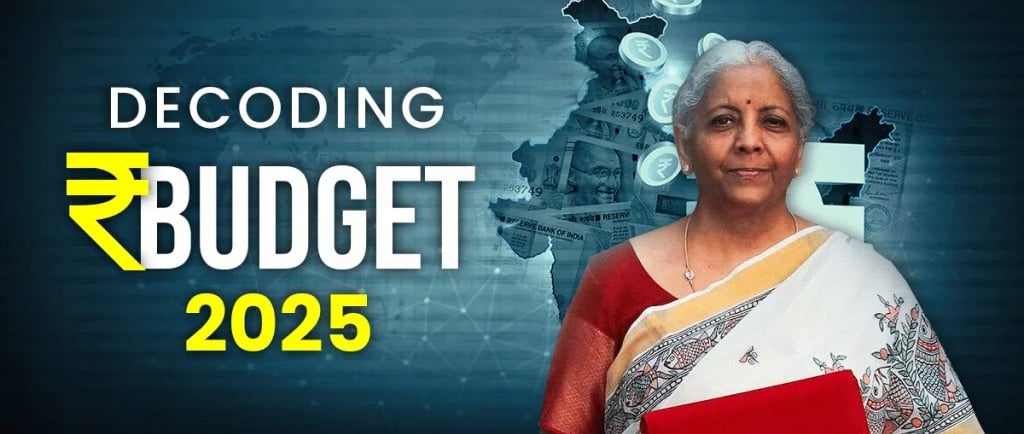**"Key Reforms and Provisions in the Finance Bill 2025: A Comprehensive Overview"**
The **Finance Bill 2025** introduces key fiscal reforms, including tax reductions, sector-specific incentives, and measures to boost economic growth. It focuses on reducing the fiscal deficit, enhancing tax compliance through digitalization, and increasing public investments in infrastructure, healthcare, and education, aiming to foster long-term economic stability and sustainability.
Admin
2/1/20255 min read


The Finance Bill 2025 lays out comprehensive reforms aimed at strengthening the nation’s fiscal framework, stimulating economic growth, enhancing tax compliance, and addressing social challenges. With an emphasis on promoting both short-term recovery and long-term sustainability, the bill introduces several key provisions across various sectors, focusing on fiscal discipline, taxation reforms, sectoral incentives, public sector investments, and enhancing the ease of doing business. This detailed summary outlines the key points of the Finance Bill 2025.
1. Taxation Reforms
One of the core objectives of the Finance Bill 2025 is to ensure a fair and equitable tax system that promotes economic growth while encouraging investment and consumption. The following tax reforms are outlined:
Income Tax Reforms:
Reduction in Income Tax Rates: A revision of the income tax slabs for individuals is proposed to ease the burden on middle-income earners and provide greater disposable income. The new tax brackets are designed to reflect economic realities and support income growth in the middle class. The intention is to make the system more progressive, ensuring those with higher incomes contribute proportionally more to the economy.
Tax Relief for Low-Income Earners: There is an introduction of enhanced tax relief measures for lower-income groups, including the expansion of tax exemptions for certain basic needs, such as education and healthcare costs, to support living standards.
Corporate Tax Reforms:
Corporate Tax Rate Reduction: The Finance Bill proposes a reduction in corporate tax rates to boost business investment and improve the competitiveness of domestic businesses. The revised corporate tax structure aims to foster economic growth by reducing the financial burden on businesses, particularly small and medium-sized enterprises (SMEs).
Incentives for Startups: To encourage entrepreneurship, tax incentives for startups in high-tech, innovation-driven, and green sectors are expanded. These incentives may include tax breaks, deferred tax payments, and lower tax rates for early-stage companies that invest in research and development (R&D) and new technologies.
Indirect Taxes and VAT:
Revised Value-Added Tax (VAT) Structure: The Finance Bill introduces modifications to the VAT system to ensure more efficiency in collection while maintaining fairness across different sectors. The bill may propose reducing VAT on certain essential goods, such as food and medicines, to make them more affordable for low- and middle-income families.
Sector-Specific Reforms: The bill calls for sector-specific tax policies, such as incentives for sectors that drive innovation or contribute significantly to job creation, such as technology, renewable energy, and manufacturing.
2. Fiscal Responsibility and Budget Deficit Reduction
The Finance Bill 2025 emphasizes fiscal discipline and long-term sustainability through targeted measures to control the budget deficit and manage public debt.
Fiscal Deficit Targets:
Medium-Term Deficit Reduction Plans: A clear roadmap for reducing the fiscal deficit is laid out, with specific targets for each year. The government aims to lower the deficit to manageable levels over the medium term through cost-cutting measures, efficient resource allocation, and increased tax revenues.
Debt Management Strategy: A comprehensive strategy is outlined to stabilize and reduce public debt. This involves revising debt issuance policies, increasing domestic borrowing, and reducing reliance on foreign debt. Moreover, the bill proposes steps to ensure the efficient use of borrowed funds in infrastructure and social welfare sectors to stimulate future growth.
Public Financial Management Reforms:
Enhanced Budgetary Control Mechanisms: The Finance Bill proposes the introduction of stricter financial control mechanisms within government spending to ensure that resources are used effectively. These measures include improved reporting standards, better monitoring of public expenditure, and an enhanced focus on value-for-money assessments.
Expenditure Rationalization: The bill outlines various public expenditure reforms, including a rationalization of subsidies and social welfare programs. A focus on targeting assistance to the most vulnerable is emphasized to ensure that government spending supports social equity.
3. Sector-Specific Incentives
The Finance Bill introduces a variety of incentives for specific sectors aimed at fostering innovation, addressing climate change, and promoting sustainable development.
Green and Renewable Energy:
Tax Incentives for Renewable Energy Investments: To support the transition towards cleaner energy, the bill proposes substantial tax breaks for companies investing in renewable energy sources such as wind, solar, and hydroelectric power. These incentives may include accelerated depreciation, tax credits for green technologies, and favorable tariff structures for clean energy projects.
Carbon Tax and Environmental Reforms: In line with global climate change initiatives, the Finance Bill proposes the introduction of a carbon tax to encourage businesses to reduce their carbon footprints. The tax will be phased in gradually, with revenues being reinvested in renewable energy projects and environmental conservation initiatives.
Technology and Innovation:
Support for Digitalization and Tech Startups: The bill seeks to enhance support for digitalization, particularly within small businesses and startups. Tax credits and grants for R&D, technology adoption, and digital infrastructure development are proposed to drive innovation and productivity in the tech sector.
Infrastructure for Digital Economy: Key initiatives in the bill focus on increasing digital access in underserved areas, expanding broadband connectivity, and supporting the development of a digital infrastructure that can support modern industries like e-commerce, fintech, and artificial intelligence.
Healthcare and Education:
Increased Investment in Healthcare: A substantial portion of the budget is allocated to strengthening healthcare systems, with a focus on improving public health infrastructure and providing affordable healthcare to underserved populations. The bill includes provisions for tax exemptions for healthcare providers and pharmaceuticals, particularly for essential medicines.
Education and Skill Development: The Finance Bill also highlights the need for investment in education and skill development. This includes tax incentives for educational institutions that provide vocational training, as well as reforms aimed at making higher education more affordable for students from economically disadvantaged backgrounds.
4. Measures to Curb Tax Evasion and Improve Tax Compliance
The Finance Bill 2025 introduces a series of measures to improve tax compliance and combat tax evasion, ensuring that the government can collect the necessary revenue to support its economic goals.
Automation of Tax Collection:
Digitization of the Tax System: One of the central components of the bill is the implementation of a fully automated, digital tax system. This system will streamline tax filing, reduce errors, and improve collection efficiency. The bill proposes a phased approach to digital tax administration, with plans for wider adoption of electronic invoicing, automated tax filings, and integrated systems for tax collection.
Real-Time Tax Monitoring: Advanced data analytics and real-time monitoring tools will be deployed to identify discrepancies and fraudulent activities. This will help in curbing tax evasion, particularly among high-net-worth individuals and large corporations.
Enhanced Penalties for Evasion:
Stricter Penalties for Tax Evasion: The Finance Bill introduces stricter penalties for individuals and corporations found guilty of tax evasion. These penalties include higher fines, potential imprisonment, and asset seizures in cases of large-scale tax fraud.
5. Public Investment and Infrastructure Development
In order to stimulate long-term economic growth and job creation, the Finance Bill 2025 places significant emphasis on public investment, particularly in infrastructure development.
Infrastructure Spending:
Transport and Logistics: The bill allocates substantial funds for the development and modernization of transportation infrastructure, including roads, railways, airports, and ports. These investments are designed to reduce logistical costs, boost trade, and enhance connectivity between regions.
Smart Cities and Urban Development: The Finance Bill includes provisions for the development of smart cities, which incorporate advanced technologies to improve urban living. Investments in sustainable urban planning, waste management, and clean energy for cities are also prioritized.
Healthcare and Education Infrastructure:
Expansion of Healthcare Facilities: The Finance Bill proposes substantial investments in public healthcare infrastructure to improve access to health services across the country, particularly in rural areas. This includes the construction of new hospitals, clinics, and research centers.
Improved Educational Facilities: Funding for educational infrastructure is also increased, with an emphasis on building and modernizing schools, colleges, and vocational institutions, particularly in underserved regions.
6. Business Environment and Ease of Doing Business
The Finance Bill 2025 also focuses on improving the business environment to foster entrepreneurship, attract foreign investment, and support job creation.
Simplification of Regulations:
Reduction in Bureaucratic Barriers: The bill introduces measures to reduce bureaucratic red tape, streamline business registration processes, and simplify the tax filing procedures to make it easier for businesses, particularly SMEs, to operate and grow.
Incentives for Foreign Investment: The Finance Bill includes provisions that make the country more attractive to foreign investors. These measures include tax breaks, easier repatriation of profits, and protection of intellectual property rights.
Conclusion
The Finance Bill 2025 presents a balanced approach to fiscal management, combining tax reforms, fiscal discipline, sectoral incentives, and strategic investments to foster sustainable growth. The bill addresses critical areas such as tax compliance, infrastructure development, and public welfare, positioning the economy for long-term resilience and competitiveness. Through targeted investments, simplified regulations, and fiscal responsibility, the bill aims to lay the groundwork for a more equitable and prosperous future.
